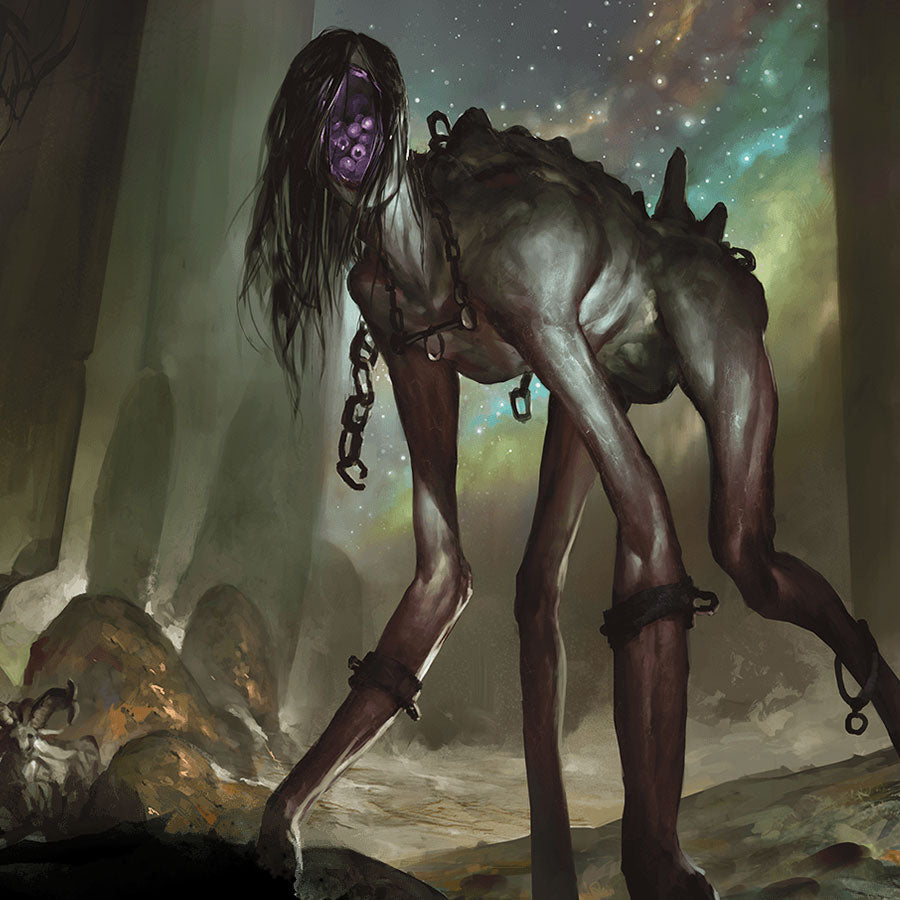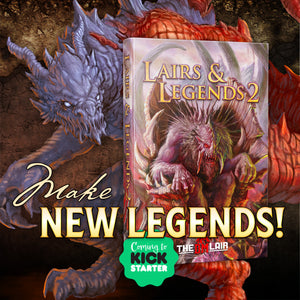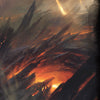7 Ways I've Failed as a Dungeon Master

Written by Luke Hart
My water elemental surged out of the well, and it grappled the wizard. Then as I described the creature beginning to drag the wizard down into the water where he would surely drown, the fighter’s player asked me, “Can I use a reaction to grab the wizard so the elemental can’t drag him away?”
I thought for a moment, and then said, “No, that’s not something a reaction can be used for. I’m sorry.” And then the water elemental dragged the wizard on down the well.
Now, of course, rules as written, I was 100% correct. However, at the same time, I was 100% wrong.
Hello folks, welcome to the DM Lair! I’m Luke Hart, and on this site, I share my nearly 30 years of game master experience so that you can run amazing games that your players will love.
Look, no one wants to admit that they’ve failed. Human nature is to either justify ourselves or blame someone else. However, we all know that we screw up, sometimes quite a bit.
So, today we’re talking about what I consider to be my top 7 biggest failures, as a game master. These are the things I regret the most and I wish I had done differently.
By the way, are you a NEW GAME MASTER feeling a bit overwhelmed by everything involved with running a role-playing game? If so, the Secret Art of Game Mastery can help. Get over 100 years of GM experience distilled into practical, easy-to-read advice.
Watch or listen to this article by clicking the video below.
#1 Saying "No"
Saying “no” to my players is probably my number 1 regret. Now, to be clear, I don’t believe a dungeon master should always say “yes” or some variations of it such as “yes, but.” I firmly believe there is a time and place for saying “no.” However, there have been times when I’ve said no—such as in the opening example I gave you—that I regret.
Now what I try to do before I say “no” to something a player wishes to do, is I ask myself, “why shouldn’t they be allowed to do this?” Is it that big of a deal? Does it ruin the game? And I try to be a little bit more relaxed about it. So, often when a player wants to do something, I’ll ask, “Okay, can you explain HOW your character would do that?” Then, if the player can give a reasonable explanation, I’ll often roll with it. If the request was outlandish to begin with, the player will usually admit that and withdraw their request. It’s a very elegant solution, in my opinion.
#2 Not removing players faster
I once had a hard-core powergamer and cheating in a game. He would do things like hide his dice rolls behind a “screen” of energy drinks and books, and then MAGICALLY always roll above a 15. It was uncanny. He would misrepresent what his characters’ abilities were, saying, for instance, that his monk could shadowstep to any space within range BUT that he didn’t need to see where he was going. Of course, when I look the ability up, it EXPLICITELY says “to any space within range you can see.” And those are just examples. He was the classic power gamer, seeking to find an advantage wherever he could, argue over rules, and even cheat. He took it way too far, much to the detriment of the group.
Now, eventually he left the game, but my biggest regret is that I didn’t remove him sooner. I’ve only ever had to remove I think three players from my games in the decades I’ve been playing, but every time I’ve done so, I’ve had the same thought: “Why didn’t I do this sooner?” You see, after removing a problem player, our next game sessions have been SPECTACULAR. It’s like a weight has been removed from our shoulders and we’re no longer being suffocated.
As a result, I’m now much quicker to correct players when they exhibit problematic behaviors, and I’m much quicker to remove them from the game.
#3 Worrying too much about balance
The 2014 D&D 5e warlock’s eldritch blast has this pushback effect that can be added to it, and I once had a player take it. When he started using it at the game table, I was dismayed that there was no saving throw, and that my monsters could basically be knocked back up to 15 feet every round. Could be a HUGE dragon; doesn’t matter; knocked back. So, I house ruled that monsters get a Strength saving throw versus the warlock’s spell save DC to resist the pushback. That player left my game either the next session or the one after. Something like that.
In the same campaign, I placed a CR 17 dragon turtle in an adventure designed for level 7 characters. They of course stood NO CHANCE against the monster—and they knew it—but they decided to take it on anyway so they could snag some treasure from its hoard. And through clever game play they somehow managed to not only survive the encounter, but get a few pieces of treasure. The dragon turtle was still alive, of course, and supremely angry, but my players accomplished their objective.
So, I think one of my failures as a game master has been worrying about BALANCE too much. Is a characters’ ability too strong? Is this spell too much? Does X, Y, or Z “break the game”? I’m playing Shadowdark right now, and one of the things I love is characters often run into monsters that clean their clocks, or their abilities or spells sometimes allow them to trounce what should have been a hard fight. It’s kind of cool, actually. And some of the best stories in my games have resulted from a LACK OF BALANCE. So, these days, I try to be more relaxed about BALANCE in my games and just enjoy the journey.
#4 Losing my temper
Back to the powergamer, the cheater. He would often really get under my skin. The constant attempts to gain an advantage, the constant rules arguments. And he would upset me; I’d lose my cool. I would give angry retorts; I wouldn’t always treat him respectfully. Now, I might try to justify that by saying he was asking for it, that it was his own fault, but as a Christian I strive to be better than that.
So, losing my temper with players is definitely one of my top regrets. And it’s still hard, believe me, because I’m a hot head. And you know, sometimes the illogical arguments or reasonings that players try to slip by their game masters—yeah, it’s hard. But I don’t want to be the angry game master cuz that’s not cool.
#5 Not playing games besides D&D sooner
When the OGL scandal happened—you know when Wizards of the Coast tried to change their SRD licensing rules to force third-party publishers out of the space—I along with many in the D&D community were irate. That single move by Wizards cause a mass exodus where gamers left behind D&D and tried other games such as Pathfinder 2 or Shadowdark. It also sparked many creators to create their own new game systems. Witness MCDM’s Draw Steel, Critical Role’s Daggerheart, Dungeon Coach’s DC20.
I personally started playing Pathfinder 2, and more recently Shadowdark. And I’ve been loving learning new game system and experiencing different ways to play. It’s made me a stronger game master overall, whether I’m running D&D—which I still do—or something else, and it’s been tons of fun.
So, my failure—or a regret at the very least—is not expanding my horizon and my experience with other game systems sooner. I think I would have personally had more fun, and, of course, it would have made me a better game master faster.
#6 Not planning boss fights enough; they fall flat
In my Sword Coast Guard campaign, Lord Paxton was the Big Bad of the entire campaign. He was the evil mastermind behind every horrible thing going on in the region. I built the nemesis of Lord Paxton up over about TWO YEARS give or take. My players knew that eventually they would face him. And they knew that he was powerful; eventually they discovered that he was an “ascended storm giant,” essentially a demi-god. And then, when they finally confronted Lord Paxton in the campaign finale, the final battle for all the marbles…Lord Paxton was a big letdown. A flop. A failure.
Contrast that with the Tiamat fight in my Hands of Light campaign. Now THAT fight was amazing. The environment was shifting each round from the interior of a volcano, to a swamp, to a bleak frozen landscape. Tiamat and her minions were really giving the players a run for their money, and the final killing blow was delivered when a barbarian who had LITERALLY been swallowed by Tiamat cut his way through her innards and chopped his way out her chest. That, my friends, was a cool final boss fight.
So, I feel like there have bene times when I didn’t do a good enough job of crafting boss fights, fights that my players are REALLY looking forward to. I didn’t spend enough time making sure they checked all the boxes of things that I KNOW I’M SUPPOSED TO DO, things that I literally make videos about. It’s easy to justify it by saying I just didn’t have enough time—and it’s kind of true; I’m super busy with the business and the multiple games I run—but it doesn’t take away the sting of a final boss fight that falls flat. It just doesn’t.
#7 Not experimenting more with the STYLE of game I run
Now, most of my games are characterized by what I call “dungeons”. These can be castles, or sewers, or actual dungeons—but they are just an enclosed location that has rooms and hallways connecting them. The defining characteristic of almost any of my games is that you as a player will be delving into these locations, these dungeons. And there will be equal parts exploration, social interactions, and encounters—so I hit all three pillars of gameplay—but most of it occurs in dungeons. That’s just how I learned to run games back in high school, and it’s been the sort of games I’ve enjoyed the most when I’ve been a player.
However, it’s turned me into a one-trick pony, I think. I’ll often hear game masters describing how they run their games, and I’m often struck by how different their games are from mine. Now, sometimes I think, “Nah, I wouldn’t want to play that way,” but many other times I think, “Holy crap, that sounds really cool!”
So, I think I’ve missed out by not EXPERIMENTING more with the style of game that I run. For instance, I recently had Harmony Ginger on a live stream talking about 1:1 timekeeping and Braunstein campaigns and her Godstein campaign style—and I think trying things like that would be amazing. My goal is to do that sort of thing—try new ways of running games—when I can. It’s hard because I am super busy and I can only run so many games at once, but I’m making this my goal at least. Ping me in a year to see if I’m still a failure in this regard or not.
100 Years of GM Experience at Your Fingertips!
Are you a NEW GAME MASTER feeling a bit overwhelmed by everything involved with running a role-playing game? Are you a VETERAN GAME MASTER looking for new tips and tricks to take your games to the next level? Look no further than the Secret Art of Game Mastery.
We at the DM Lair have distilled our CENTURY of accumulated GM experience into an easy-to-read guide of practical advice that you can immediately apply to your games! We've even included our own templates–the things that we use to prepare our ACTUAL games.
Get all three books to master your game:
- The Secret Art of Game Mastery. Contains over 100 years of GM advice distilled into an easy-to-read format. It introduces and explains the tools of the trade, scheduling, playstyle, post-game notes, getting player feedback, and more.
- The Secret Art of Preparation. Brings to your fingertips the actual templates and guides that the DM Lair team uses to prepare games, Lair Magazine, and more. Designed as a three-ring binder, it's intended for you to write directly into for your entire campaign!
- The Secret Art of Notetaking. Gives you the keys to tracking your campaign from session to session just like the DM Lair team. Designed as a three-ring binder, it's intended for you to write in and keep track of your whole campaign!
With so much knowledge and experience on its pages, The Secret Art of Game Mastery is guaranteed to become an indispensable tool for all game masters, new and veteran alike. And if that isn’t enough, the information applies to all game systems and all genres!
-
Posted in
Game Master How-To Articles







